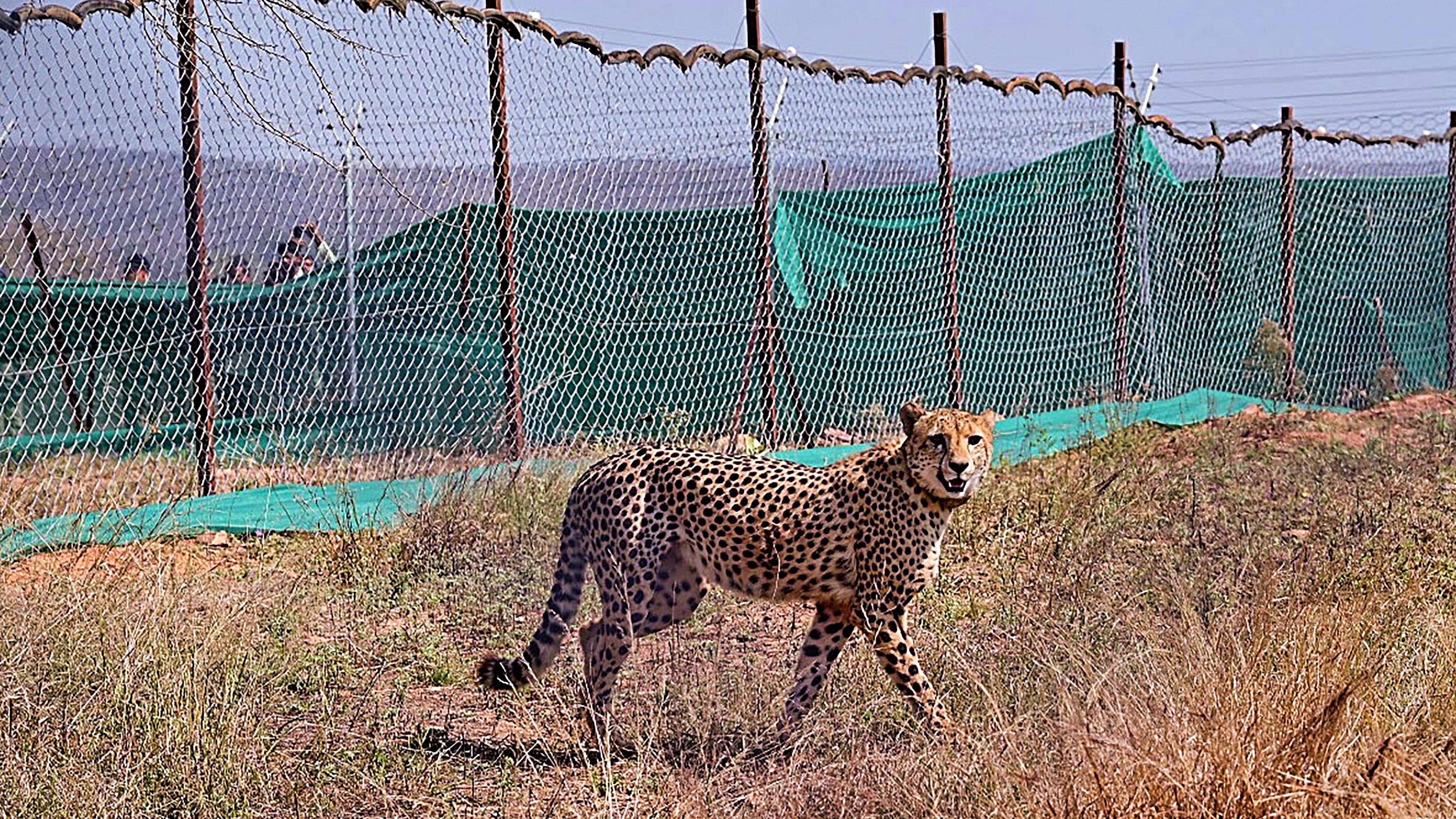
Beyond wildlife conservation, the visit helped strengthen diplomatic and environmental cooperation between Kenya and India and opened the way for future collaborations.
Credit: PTI Photo
A delegation from Kenya, which visited the Gandhi Sagar sanctuary in Madhya Pradesh to take stock of preparations for cheetah reintroduction in the area, expressed over site finalisation.
The six-member team, which consisted of officers of the Kenyan Wildlife service, visited the sanctuary, spread across Mandsaur and Neemuch districts, on May 21 and 22.
The delegation was briefed about Cheetah project, progress and achievement, preparation made for introduction of Cheetahs in Gandhi Sagar sanctuary and taken around in the field to get them apprised of the current situation.
This visit was a part of a broader initiative focused on wildlife conservation and the reintroduction of Cheetahs to the region. Kuno National Park has been at the forefront of efforts to reintroduce Cheetahs into India after their extinction in the country more than 70 years ago.
The Kenyan delegation’s visit was significant for several reasons: Knowledge exchange, Collaborative efforts, Support for reintroduction programme and strengthening diplomatic ties.
Kenya has a long history of successful wildlife conservation, particularly with Cheetahs. The delegation’s visit provided an opportunity for exchange of expertise in managing and conserving the Cheetah population.
The visitors were apprised of the equipment and technology which the Wildlife Institute of India (WII) and National Tiger Conservation Authority (NTCA) experts would use for monitoring the animals.
Beyond wildlife conservation, the visit helped strengthen diplomatic and environmental cooperation between Kenya and India and opened the way for future collaborations.
Eight Namibian cheetahs were released into enclosures at KNP on September 17, 2022. In February 2023, another 12 cheetahs were brought to the park from South Africa. There are at present 27 cheetahs in KNP, including 14 cubs that were born on Indian soil.